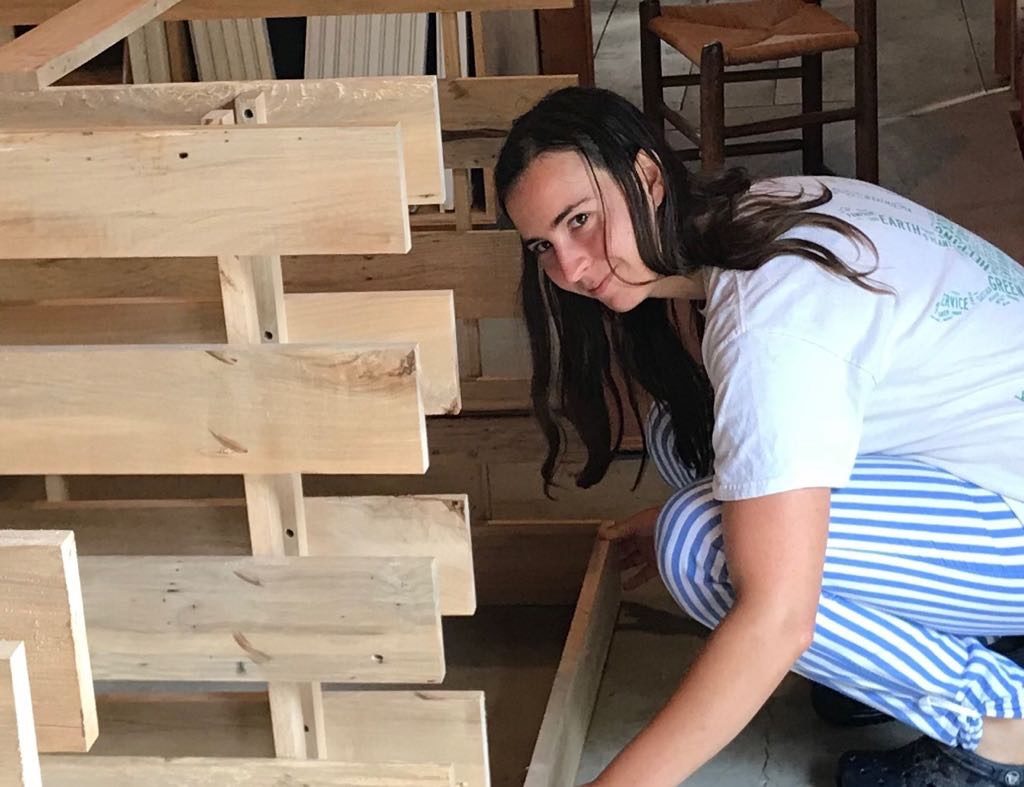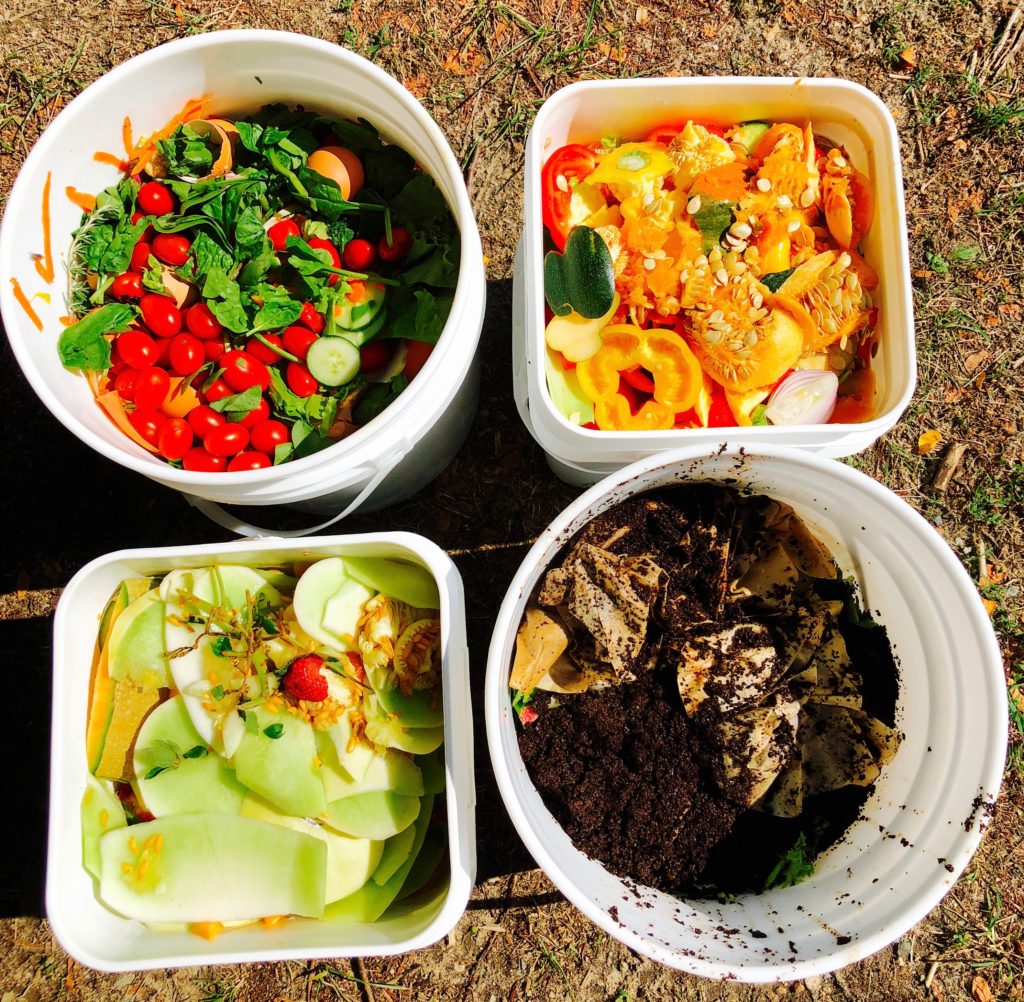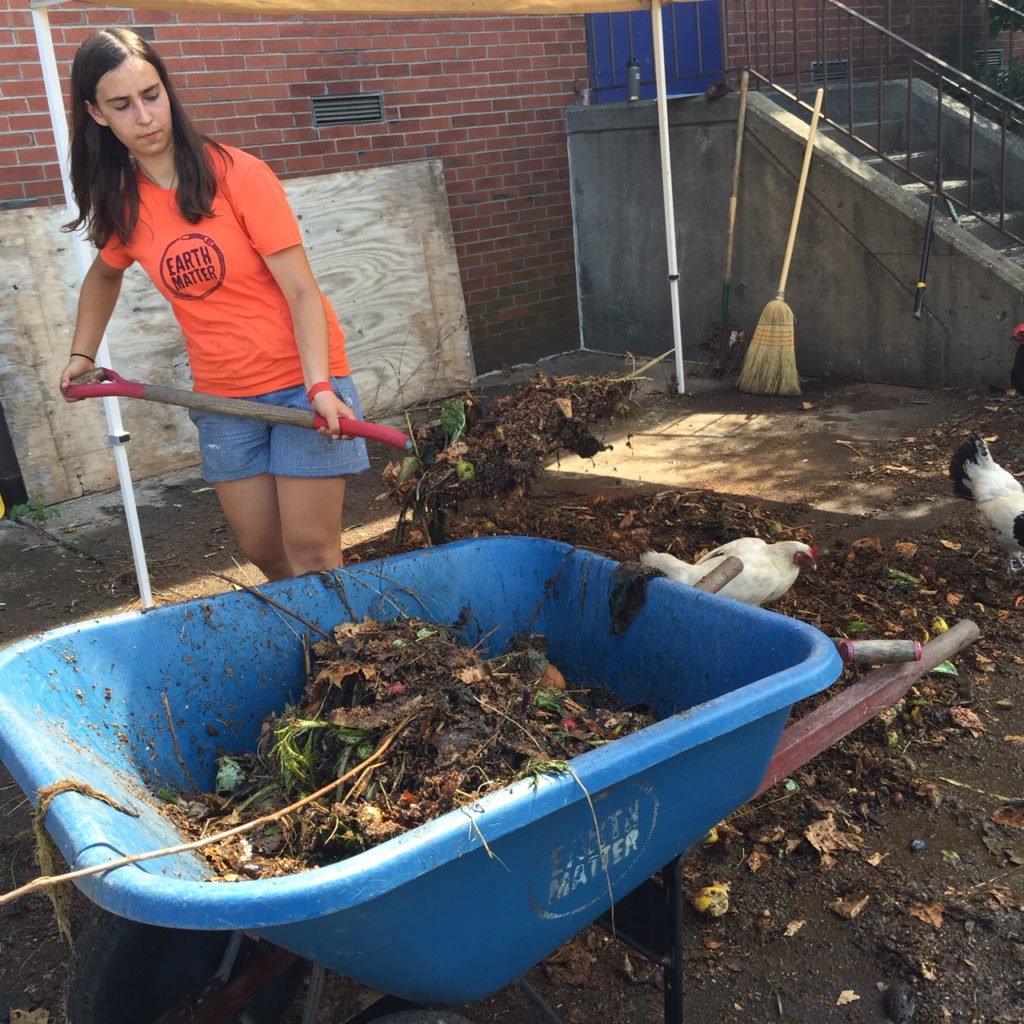“Do you really need one more seashell?” During Nell Pearson’s senior year of high school, her classmate posed this question to her. They were visiting Assateague, a island off the coast of Maryland and Virginia known for its wild ponies and beaches, but her classmate worried about the retreat’s environmental impact. She used a seashell to symbolize tourists who took shells and other articles that didn’t belong to them, which hampered with the park’s natural decomposition processes.

The illustration stuck with Pearson, not that she was a novice to conservation or waste management. Since a junior in high school, the New York City native has worked with several organizations that promote recycling, composting, and environmental protection. It all began with her internship at the Brooklyn Historical Society, where she learned about Brooklyn’s sewers. The project led to her joining The Billion Oysters Project the following summer. As a partner organization to Earth Matters, The Billion Oysters Project replants oysters into New York’s rivers. “Actually New York was a huge spot for oysters originally,” Pearson explains. “Oysters can naturally filter the waste generated by New York City.”
Besides her oyster-centered work, Pearson spent the same summer composting, practicing urban agriculture, and teaching New Yorkers to improve their personal waste management strategies. Peterson reflects, “It was really cool seeing and understanding waste on a larger scale. In New York you’re not really thinking about it and just put your trash on the sidewalk for someone else to pick up. ” She laughs. “I’m now the waste enforcer of my house!”

This past summer Pearson applied the skills she learned to an original project. At Plimouth Plantation in Plymouth, Massachusetts, Pearson initiated a composting prototype for its horticultural department. After contacting the museum’s gardens, kitchen, and offices, she collected scraps for composting. “Looking towards the future, I think the museum can become a leader among neighboring institutions to live more sustainably,” Pearson states.
As Pearson completes her semester in Durban, South Africa, she looks forward to pursuing waste management research in a new context. After observing plenty of waste along the roadside and few collection bins, she knows the area has potential. “I think it’s really important to not only be aware of the problems in my community but also what’s going on at a global scale.”




